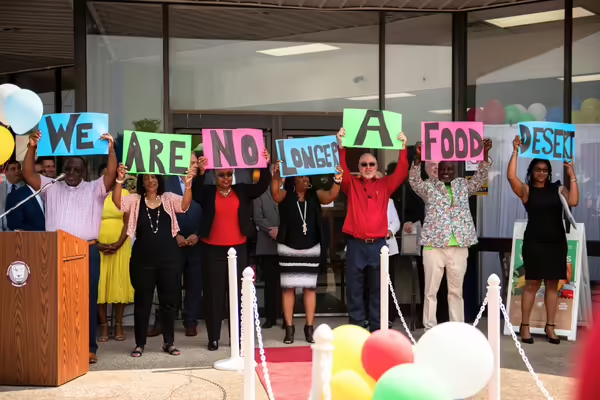
URBANA, Ill. — Picture a world where everyone enjoys equal access to optimal health, regardless of where they were born or their identity. Sadly, reality diverges from this ideal. Health disparities disproportionately impact many Illinois residents due to factors such as race, nationality, and geographical location. Addressing this issue requires collective effort. Discrimination linked to these factors significantly influences our lives and choices, leading to unequal health outcomes. Health equity is the road toward a fairer, healthier global community.
The Health Equity Achieved Together project is a multidisciplinary project funded by the Illinois Supplemental Nutrition Assistance Program Education (SNAP-Ed) with other University of Illinois Extension programs, including Illinois 4-H and Community and Economic Development. HEAT team members collaborate with community members to improve food access and implement innovative strategies that improve health outcomes in communities facing higher health disparities. Working through Extension leverages expertise and networks across Illinois, maximizing the positive impact on the health of local families.
HEAT Projects - Transformative Health Achievements:
The HEAT program supports four projects tailored to Illinois communities' distinct cultural and social fabric.
Southern Illinois Food Access: Sought to improve access conditions in Cairo and Gallatin County, working collaboratively with community members and an expansive list of partners to open Cairo's first grocery store in over seven years, and delivered 20,000+ pounds of food via a mobile pantry.
Zion Healthy Together: Created a community resource hub to increase access to local services, healthcare screenings, and food resources, including a seed library and on-site food pantry.
Peoria Youth Wellness Community Partnership: Enhanced youth wellness by encouraging attendance at after-school programs and providing safe spaces for youth to be active.
Deer Donation: Linked hunters, processors, pantries, and private donors in east-central Illinois to provide over 80,000 meals of ground venison to 53 food pantries across 16 counties.
Award-Winning Project
The HEAT project gained attention at the National Conference on Health Outcomes, where it received recognition for its impactful work. The project's efforts to address contextual factors that impact community health were honored. These include social determinants of health (SDOH), catalyzing policy, systemic or environmental change (PSE), and creating essential conditions for well-being.
"Illinois SNAP-Ed's HEAT projects showcase the power of leveraging the outreach mission of Extension to address food access and active living opportunities in communities," says Trinity Allison, SNAP-Ed senior program lead, Illinois Extension. "By bringing community members and diverse partners to the table, the communities have co-created solutions that honor their specific needs, assets, and histories. Seeing what can be accomplished when we all work together has been amazing."
This recognition further commits the HEAT teams to continue working for the most vulnerable communities in Illinois.
SOURCE: Trinity Allison, SNAP-Ed senior program lead, Illinois Extension.
WRITER: Herbert Chavez, media communications coordinator, Illinois Extension.
Illinois Extension leads public outreach for University of Illinois by translating research into action plans that allow Illinois families, businesses, and community leaders to solve problems, make informed decisions, and adapt to changes and opportunities. Illinois Extension is part of the University of Illinois Urbana-Champaign College of Agricultural, Consumer and Environmental Sciences.